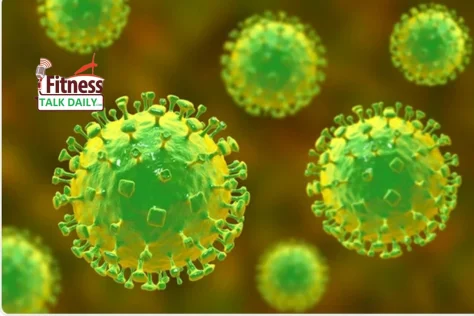The Nipah virus, a dangerous zoonotic disease, has caused concern in Kerala, India, as the bat breeding season draws near. The state has started implementing stringent precautions to prevent the spread of this deadly virus, which has caused outbreaks in the past. As bats, the primary reservoir of the virus, begin their breeding season, the risk of transmission increases, leading to heightened awareness and measures to safeguard public health.
In this article, we will dive into the ongoing precautions being taken in Kerala to combat the potential spread of the Nipah virus, explore the dangers of the virus, and provide key tips on how you can protect yourself.
What is the Nipah Virus?
The Nipah virus (NiV) is a zoonotic virus that can cause severe respiratory and neurological symptoms in humans. It is primarily transmitted through direct contact with animals, particularly fruit bats, which are considered the natural hosts of the virus. Human-to-human transmission is also possible, making it highly contagious in certain circumstances.
Symptoms of Nipah Virus Infection:
- Fever and headache
- Dizziness and confusion
- Respiratory distress
- Seizures and neurological symptoms
- Encephalitis (inflammation of the brain)
Given its high mortality rate, swift identification and precautions are crucial to prevent the virus from spreading further.
Why Is the Bat Breeding Season a Concern?
Bats, particularly fruit bats, are known to be the primary carriers of the Nipah virus. During the bat breeding season, which usually peaks in September to December, bat activity increases significantly. As a result, the potential for human exposure to the virus through bat saliva, urine, or feces also increases.
Transmission Risks During Bat Breeding Season:
- Direct contact with bats: People may come into proximity with bats, especially those working in agricultural fields or forests.
- Contaminated food: Bats are known to feed on fruits, and in some cases, the virus can be transmitted to humans through the consumption of contaminated fruit or products like date palm sap.
- Human-to-human transmission: Close contact with infected individuals, particularly healthcare workers and family members, can also spread the virus.
Understanding these risks, Kerala is focusing on taking timely precautions to limit human-bat contact during the breeding season and prevent outbreaks.
Precautions Taken by Kerala to Prevent Nipah Virus Spread
Kerala’s health authorities have learned from previous outbreaks and are implementing a robust set of precautions to protect the public from the Nipah virus:
1. Monitoring and Surveillance:
The state is increasing surveillance in areas known for high bat activity and possible exposure. The government is tracking bat populations, especially in regions with large fruit bat colonies, to monitor any signs of the virus. Health workers and veterinary experts are being deployed to assess bat health and the risk to humans.
2. Public Awareness Campaigns:
Raising awareness is a critical part of the strategy. The Kerala government is conducting public health campaigns, emphasizing the importance of avoiding direct contact with bats and their droppings. Educational materials are being distributed, and local authorities are engaging with communities to ensure they understand the risks.
3. Safe Handling of Fruits and Palm Sap:
Since bats feed on fruits and palm sap, the government is advising people to avoid consuming unwashed fruits and raw date palm sap. Farmers and local vendors are being instructed on safe harvesting methods to prevent contamination by bats.
4. Quarantine and Isolation of Infected Patients:
In case of a suspected Nipah infection, the health department has designated isolation wards in hospitals to treat patients while preventing the spread to others. Rapid identification and quarantine of suspected cases are critical to controlling outbreaks.
5. Travel and Movement Restrictions:
In high-risk areas, movement may be restricted, particularly if any outbreaks are identified. The government has imposed temporary travel bans or quarantines for individuals coming into contact with infected areas.
6. Enhanced Healthcare Infrastructure:
Kerala is bolstering its healthcare infrastructure by ensuring that medical facilities are equipped with necessary resources, including personal protective equipment (PPE) for healthcare workers and antiviral medications.
How Can You Stay Safe?
While the Kerala government is taking significant precautions, there are also steps individuals can take to protect themselves and reduce the risk of exposure to the Nipah virus:
1. Avoid Contact with Bats:
- Stay away from bat habitats: Avoid areas where bats are known to congregate, such as fruit orchards, caves, and palm sap collection sites.
- Use protective clothing: If you are a farmer or someone who works with animals, wear protective gloves and masks when handling fruits or bat-infected areas.
2. Do Not Consume Unwashed Fruits or Raw Palm Sap:
- Wash fruits thoroughly before consumption, especially those found in areas with a known bat population.
- Avoid consuming raw date palm sap or any products that might be contaminated by bats.
3. Follow Public Health Guidelines:
- Pay attention to public health advisories and follow government instructions during the Nipah virus season.
- If you develop flu-like symptoms, especially after being in high-risk areas, seek medical attention immediately.
4. Practice Good Hygiene:
- Wash your hands regularly, especially after coming into contact with animals or fruits from questionable sources.
- Use sanitizers and disinfectants as needed to kill any potential virus particles.
Precautions in the Face of Future Outbreaks
With the increasing threat of the Nipah virus, the focus must shift to creating long-term strategies to prevent future outbreaks:
| Precaution Measure | Objective |
|---|---|
| Enhanced surveillance of bat populations | Track and monitor bat activity to predict outbreaks. |
| Training and equipping healthcare workers | Ensure readiness to handle potential cases efficiently. |
| Public education and community engagement | Raise awareness of risks and protective measures in high-risk areas. |
| Improved diagnostic facilities | Speed up detection of the virus in humans and animals. |
These long-term precautions aim to safeguard public health while managing the risks posed by zoonotic diseases like the Nipah virus.
Preparing for the Nipah Virus Threat in Kerala
As the bat breeding season approaches, Kerala is taking necessary steps to protect its population from the potential spread of the Nipah virus. By implementing strong precautions like surveillance, public awareness campaigns, and safe food handling practices, the state is preparing to mitigate the risks of an outbreak. However, public cooperation and individual vigilance are equally essential.
By staying informed and following health guidelines, you can protect yourself and your community from the Nipah virus. The key to successfully preventing the spread lies in proactive precautions and swift action at the community and governmental levels.




